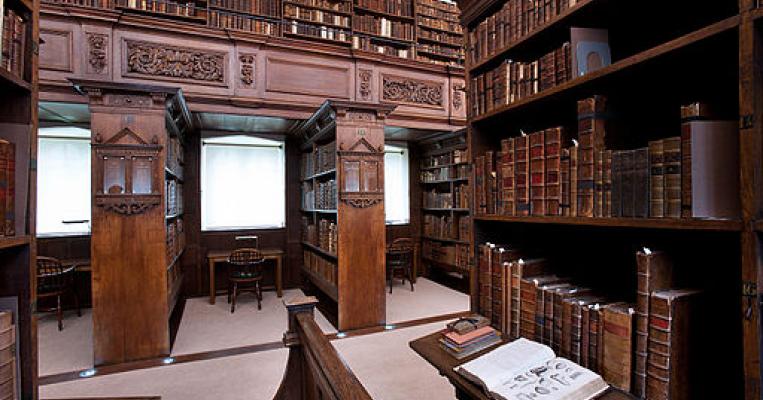For all its dubious practicality, English is still one of the most popular college majors around. But the discipline is relatively new to academia, even in the homeland of Chaucer and Shakespeare. Until the late 19th century, classics monopolized literary studies. The authorities at England’s preeminent universities, Oxford and Cambridge, “refused to accept English as a serious, scholarly discipline, deeming it too vague and ill defined to be taught and examined in a systematic manner,” writes Alexandra Lawrie, a PhD candidate at the University of Edinburgh.
Banned from Oxbridge’s hallowed lecture halls, the discipline instead incubated a stone’s throw away, in university extension programs designed to bring higher education to the masses. Civic-minded British scholars developed such programs in the 1870s, providing working- and middle-class adults the opportunity to attend lectures by university faculty for greatly reduced fees and eventually earn diplomas.
Extension lecturers such as John Churton Collins used the system to demonstrate “a workable scheme providing students with a literary education that was both broad and thorough.” Because critics saw English as a “soft” discipline that could be used to play up English pride, instructors emphasized “critical analyses of individual texts, rather than superlative examples of English conduct or moral fiber.” An extension course on the poet Robert Browning, for instance, included lectures on the author’s biography; his command of literary devices, psychology, and theology; and his translations of Greek poetry.
By the early 20th century, skeptics “could no longer remain impervious to the sheer volume of letters and articles on [English literature], or to the number of adults signing up for English lectures,” Lawrie writes. Extension instructors such as R. G. Moulton would go on to be the first university professors of English. And if Collins needed absolute proof that English had arrived, his seminal work, The Study of English Literature (1891,) was adopted “practically verbatim” as a curriculum guide by Cambridge University when it finally established an English course of study in 1917.

